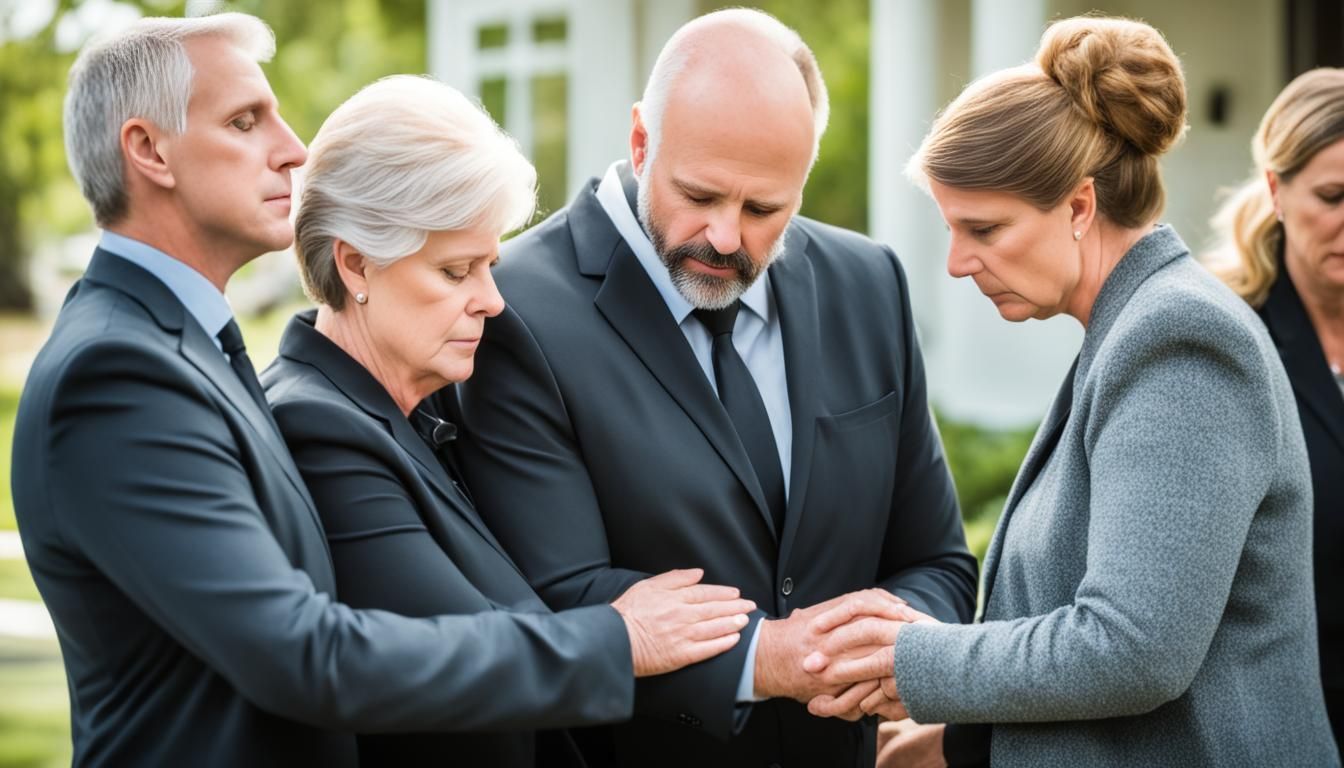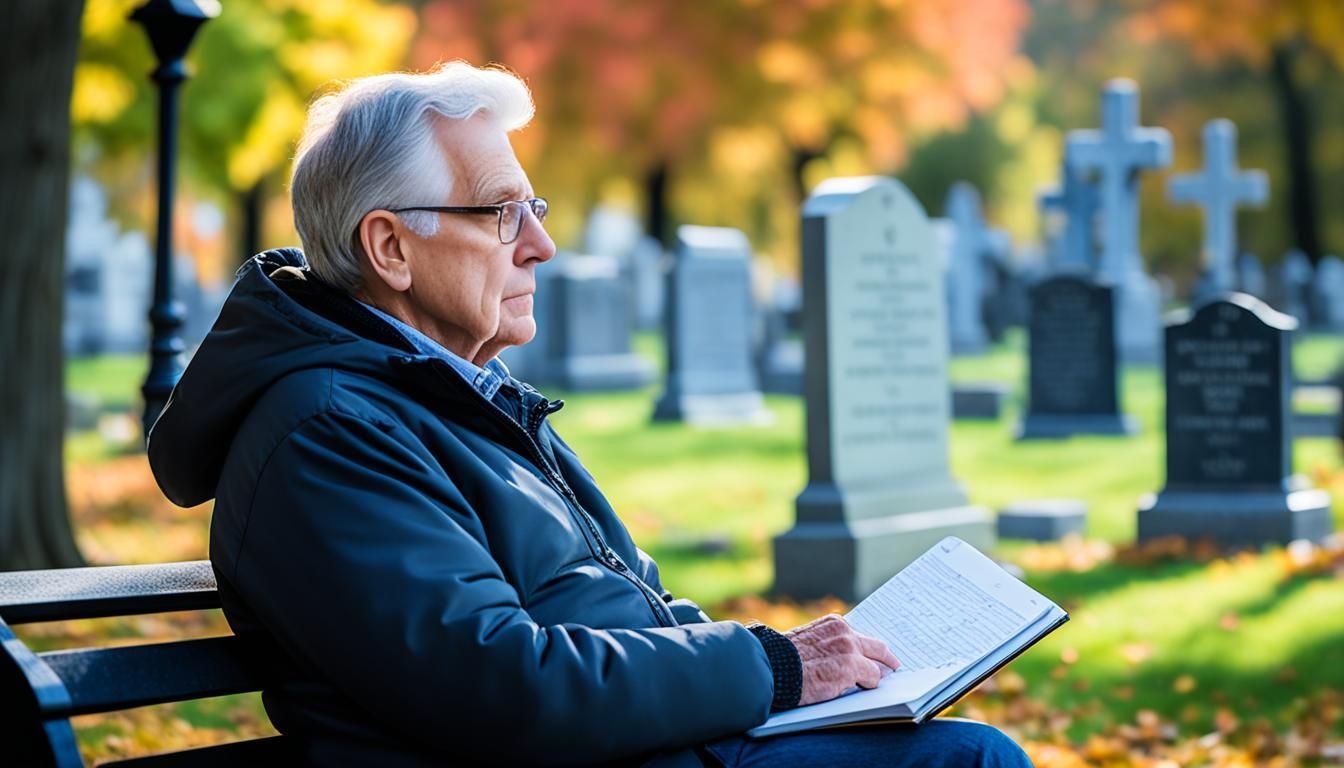Should My Child Attend the Funeral? Guidance Tips
Should My Child Attend the Funeral? Guidance Tips
When we lose someone, deciding if our child should go to the funeral is tough. This choice is influenced by our culture and personal views. It makes us think about children funerals and how kids deal with loss.
Talking about kids and loss requires care and thoughtfulness. We need to consider the child’s age, how close they were to the person who died, and what the funeral will be like. Kids might not fully understand death yet. However, being at the funeral might help them with their child grief support. Edwards Funeral Service knows how to help families with this, offering a caring place for those grieving.
The real issue is more than just being there. It’s about helping the child cope, supporting them, and saying goodbye in a way that makes sense. We must balance what the child needs with what the family wants. This way, everyone feels comfortable with the decision.
Key Takeaways
- Assessing your child's emotional maturity is key when considering funeral attendance.
- Understanding a child’s viewpoint on death helps determine their readiness for funerals.
- Each child is different—some may find closure in goodbyes, while others might not.
- Edwards Funeral Service can offer advice and accommodations for children.
- A child's contribution to the grieving process is valuable and deserves respect.
Understanding the Role of Funerals in Child Grief Support
Funerals help kids deal with loss by offering a safe space to express sorrow. It's crucial to know when a child is ready to attend based on their understanding of death and mourning. This helps prepare them emotionally and spiritually for the experience.
Evaluating Your Child's Emotional State and Maturity
Before you decide if your child should attend a funeral, consider their emotional maturity. Knowing this helps predict how they might react to the sadness they see there. Mourning affects children deeply and varies with their emotional and mental growth.
Anticipating Reactions and Supporting Your Child Through the Process
Children react to death in their unique ways, based on what they know and their past experiences. Supporting them means being ready to answer their questions about death truthfully and kindly. It's important to keep the lines of communication open and provide constant assurance.
Contextual Factors: Open/Closed Casket and Service Duration
Think about whether the casket will be open or closed and how long the service will last. An open casket and the ceremony's length can really affect how comfortable and behaved a child is during the service.
| Aspect | Consideration |
|---|---|
| Open/Closed Casket | Discuss what the child will see and prepare them for the visual aspects of children funerals . |
| Duration of Service | Plan according to the child's attention span; consider a quiet space where the child can rest if the service is lengthy. |
By understanding these aspects, caregivers can make thoughtful choices about children dealing with grief at funerals. This supports their healing process with care and respect.
Kid Funeral Etiquette and Preparing Your Child for the Ceremony
Understanding kid funeral etiquette and preparing kids for funerals is very important. It supports the child grieving process. It's key to be sensitive and communicate clearly. This way, we make sure kids get the right child grief support. Let's look at how to prepare children for a funeral.
Communicating What to Expect at a Funeral in Age-Appropriate Language
It's crucial to explain funeral events in simple terms. Talk about what will happen, like viewings, eulogies, and burial or cremation, using soft words. This eases their worries and makes the funeral seem less scary.
Alternatives and Strategies for Younger Children
Young kids may struggle to stay focused during long services. It might be a good idea to have a babysitter they trust. This lets children take a break if they need to. It helps keep them involved but recognizes they might get restless.
Importance of Giving Children a Choice and a Voice
Letting children decide if they want to go to the funeral shows we respect their feelings. If they go, giving them a part like placing flowers can make it meaningful. This involvement can help them heal.
By posting obituaries online and showing kids how to remember the lost, places like Edwards Funeral Service help kids grieve well. They encourage kids to express their sadness in good ways. Doing this helps with grieving and teaches children respectful funeral behavior early.
Conclusion
Deciding if a child should go to funerals is a tough and personal choice. It needs us to really understand how a child deals with death. Edwards Funeral Service helps families figure this out. They know each child deals with loss in their own way. It's crucial to make sure kids feel supported. This helps them handle the mixed feelings funerals can bring. Whether it's their first time dealing with loss or not, these moments are key. They help shape how a child views remembering and healing.
When kids face loss, it's important to give them true information, support, and let them feel involved. Edwards Funeral Service helps families explain death in a way kids can understand. They give choices that let families help their children say goodbye properly. This helps show how important each child's feelings are in dealing with loss. It makes sure their grief is seen and their coping is helped.
Grieving together is a careful balance between remembering the passed and keeping the family ok. Edwards Funeral Service works hard to help families during these hard times. They create spaces where adults and kids can grieve with respect. As families look for support for their kids during these sad times, Edwards Funeral Service is there. They offer kindness and care to everyone as they remember their loved ones.
FAQ
Should my child attend the funeral?
Deciding if your child should go to a funeral is tough. Think about how they handle feelings and what they know about death. Also, consider if they want to go and what the service will be like. The choice should center on what's best for their feelings.
How can funerals provide child grief support?
Funerals let kids face loss and learn that it's okay to grieve. They can say goodbye and find closure. Supporting them through this time is vital for handling their sadness.
How should I evaluate my child's emotional state and maturity in relation to attending a funeral?
Look at how your kid has dealt with tough emotions and their grasp of death. Kids vary in emotional readiness for funerals. Talk openly with them about death to see if they're ready for such an event.
What are some typical reactions children have at funerals, and how can I support them?
Kids can show many feelings at funerals, like curiosity or even being unaffected. Explain what they might see and feel. Let them know it's okay to have any reaction and offer comfort.
What should I consider about open/closed casket ceremonies and the funeral service duration?
Open casket services can be hard for kids and might confuse or upset them. Closed casket services are generally less so. Also, long services can be tough for kids to sit through. Making arrangements for them to leave early is an option.
How do I communicate what to expect at a funeral to my child in age-appropriate language?
Talk in clear, simple terms about what a funeral is and its purpose. Describe what will happen and answer their questions honestly but in a way they can understand.
What alternatives or strategies should I consider for younger children attending a funeral?
Consider a babysitter or a familiar adult for young kids, in case they need to leave early. You can provide quiet activities or involve them in a meaningful ceremony part.
Why is it important to give children a choice and a voice in the decision to attend a funeral?
Giving kids a choice to attend a funeral respects their feelings and independence. It shows their opinions matter in grieving. Allowing them to express themselves helps them be a part of the process, as much as they're comfortable with.










